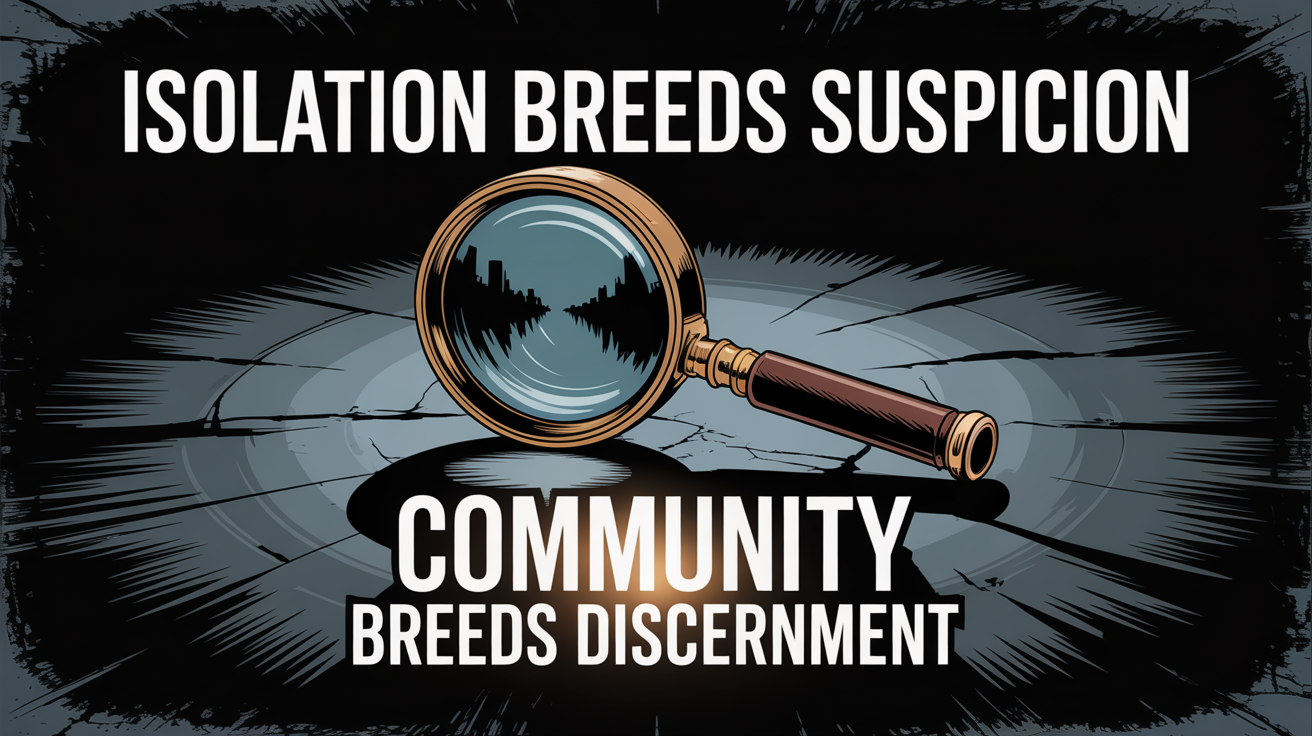Suspicion grows best in the dark.
When we’re hurt, when trust is fractured, when trauma has left its fingerprint on our souls, the temptation is to retreat. To circle the wagons. To pull back from people because people were the problem.
Isolation doesn’t just keep us “safe.” It breeds suspicion.
Suspicion whispers, “You can’t trust them. They’re out to get you. Better watch your back.” And soon, suspicion metastasizes into paranoia. Paranoia convinces us we’re discerning when, in fact, we’re simply afraid.
But the Bible tells a different story.




